Sinclair Group is demonstrating on a daily basis that sustainability is not just an ethical choice but a smart business decision too.
By embedding socially responsible practices into many aspects of the business, Sinclair Group is proving that a holistic approach to community – both inward and outward-facing – can help to drive both purpose and profit.
It is not just the large-scale initiatives but also small, impactful steps that are significantly bolstering the dealership group’s sustainability efforts, creating long-term financial benefits and a stronger connection with employees and customers.
Sinclair Group is demonstrating on a daily basis that sustainability is not just an ethical choice but a smart business decision too.
By embedding socially responsible practices into many aspects of the business, Sinclair Group is proving that a holistic approach to community – both inward and outward-facing – can help to drive both purpose and profit.
It is not just the large-scale initiatives but also small, impactful steps that are significantly bolstering the dealership group’s sustainability efforts, creating long-term financial benefits and a stronger connection with employees and customers.
Richard Seaward, head of strategic development at Sinclair Group, has taken a hands-on approach to integrating sustainability into the company's operations and what started as an overlooked responsibility has now become a central focus of Sinclair’s corporate mission.
“We've been running since 1945, and we always positioned ourselves as a business that provides employment for local families. That was always the chairman's ambition but as the business became more complicated not to mention life getting more complicated, that original purpose didn't really fit the bill.”
“It got to a crucial tipping point where the business could no longer just cope with someone picking up all of these responsibilities as part of their day job, so I found myself with this kind of strange hybrid role - part sustainability, but also looking after the marketing team, IT team, procurement team, group contracts, and health and safety.”
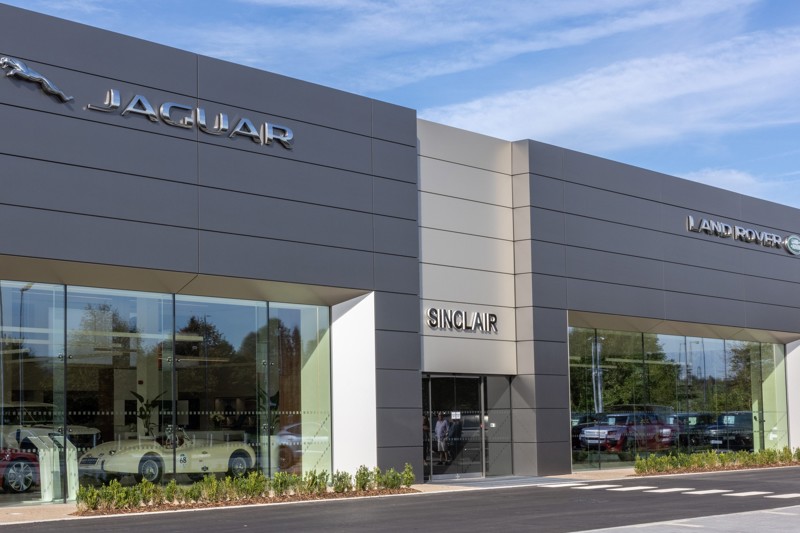 Today, a family-owned company based in South Wales, Sinclair operates 23 dealerships representing brands such as Audi, BYD, Jaguar Land Rover, Mercedes-Benz and Volkswagen, and employs over 950 people. Despite its long-standing reputation as a leading regional retailer, the company realised it needed to redefine its purpose beyond providing employment.
Today, a family-owned company based in South Wales, Sinclair operates 23 dealerships representing brands such as Audi, BYD, Jaguar Land Rover, Mercedes-Benz and Volkswagen, and employs over 950 people. Despite its long-standing reputation as a leading regional retailer, the company realised it needed to redefine its purpose beyond providing employment.
As part of a fact-finding mission, Sinclair therefore embarked on some deep-dive internal research to help it focus on developing its modern-day mission. It came up with a simple yet powerful ethos: “Belong For Good.”
“We want all of our staff and customers to feel they belong for good,” says Seaward. “We want to build a lasting business that does the right thing, with jobs for local families forever. We've always been a business that focused on our community, and we recognised that we have a wider role to play.
The “Belong For Good” message essentially is aimed at employees and customers and features four key elements: there's belonging for better jobs; better workplaces; better communities and better environment.
“Two of those talk directly to our staff in terms of making sure that your job is a job you want to be doing, that we look after working hours to be as flexible as we can be, that people have the right amount of challenge and support in their roles, that the workplace in which they work are nicely presented, fit for purpose and lovely places to walk into.
“Then you've got the focus on sustainability and the environment and the community. So it's very much an inward and outward facing approach that gets summed up under those three words.”
First Steps
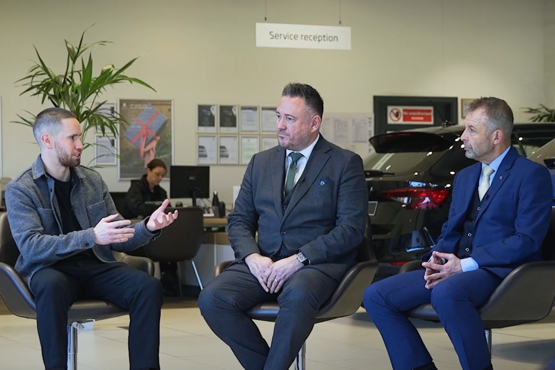 “We sat down with the teams and explained what we were doing and why we were doing it,” says Seaward.
“We sat down with the teams and explained what we were doing and why we were doing it,” says Seaward.
“The first big change was our recycling scheme. We already knew that the Welsh Government was about to implement legislation, so we knew we would have to do it sooner rather than later, but we wanted to be proactive and get it done because it was the right thing to do.”
“So, we kicked off a recycling project that has reduced our waste by 75%. That matters because every bin of general waste costs three times more than recycling with each site set to save between £5,000-£10,000 this year just by sorting waste properly.”
Sinclair Group also tackled waste oil disposal. Seaward explains: “We used to just have it taken away. Generally, waste oil from our cars is used in the marine industry. Ships have two tanks. They get ten miles out of shore, and they switch to the dirtier oil tank, and off they go and burn all that dirty oil, sending the carbon up into the atmosphere.
“We now send our waste oil to a different supplier who recycles it and creates base oil that is used instead of fresh crude oil being pulled out the ground. That has had a massive impact. So far this year, we've save 150,000 kilograms of carbon from being sent up into the atmosphere - just from the waste oil coming out of our cars.”
The company has also moved toward paper-free operations. “We've gone digital,” says Seaward, “so our sales departments are paper-free, and as paper-free as you can get an aftersales manager to be.
“They love having a job card, don't they?” he laughs “Every time you go to their desk, there's something hidden under the tree. What’s that? That’s a job card. Why is it there? Paper doesn’t need to be there, but we are getting there.”
One of this year's goals in the company’s sustainability journey is the installation of solar panels. “If you don’t already have solar panels on your roofs, that needs to be your first action,” Seaward says. “These things have never been cheaper.”
“The payback time is three and a half years. We’re going to put them across all our businesses, and we estimate this will save us £30 million over the next 25 years. I defy you to find another business saving worth a million pounds a year."
Solar panel installations across all sites - including at its leased dealership properties – will soon start to be rolled out. “It’s not a quick process, but the benefits are massive,” says Seaward. “Many retailers still don’t have panels but they could be saving a fortune. It’s an absolute no-brainer.”
Business case, personal proof
Even though this is a major investment, Seaward says that dealerships embarking of their own sustainability journey should essentially approach it in incremental fashion as the positive results will flow immediately. “You don't have to treat it as a big-scale problem. You just have to break it down into small steps and think, ‘what can we do next?’
“The joy of sustainability is that it is the original ‘win-win.’ I guarantee that if you go away tomorrow and take some sustainable actions, you will save money.”
“Every time there has been a business case, it has fallen in favour of the more sustainable option. It’s surprising because you’d think turning green would be more expensive, but that’s not necessarily the case.”
To ensure employees were engaged from the outset, Sinclair Group implemented several board-level commitments, including appointing a group environmental manager and ‘eco champions’ at each site, introducing Carbon Literacy Trust training, and offering a paid volunteering day to encourage community involvement.
“When I first stepped onto this road,” he says, “we needed to focus on our environmental sustainability aspirations and we knew we needed people to help us at a site level, so we engaged volunteers at every dealership. We then put them through Carbon Literacy Trust (CLT) training so they understood why their role would matter.”
The significance of that foundational education can’t be understated and provides a common shared understanding of what excellence in terms of best practice sustainable activity looks like.
“We assume that everyone understands what greenhouse gasses are and how they contribute to global warming, but not everybody has a complete understanding. The CLT frames it to help people achieve better comprehension. They also set challenges, so you have a personal and business challenge that will have a positive impact,” he says.
For Seaward, that meant recently having himself filmed cooking a vegetarian meal for his head of HR, as an example of a personal pledge to go meat-free one day a week.
It's the sort of activity that helps embed the idea of engagement at all levels of the business. As Seaward explains: “We've got a band of people now who are going out there to show that Sinclair Group is serious about its impact on the community and the environment.”
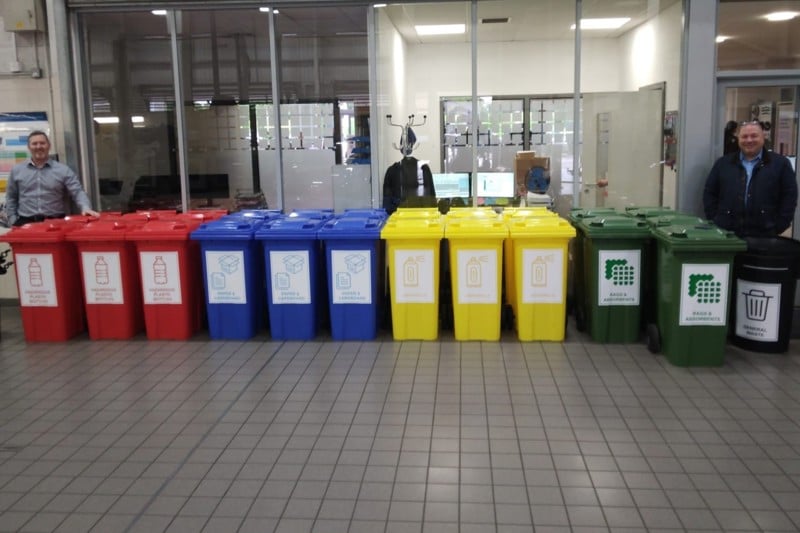
Measuring success
Every business knows that to assess the performance of any new initiative requires measurement and the effort to develop a robust mechanism in place to gauge their contribution can reveal unexpected insights, according to Seaward.
“There’s financial success because we know where we’ve saved money. We also have improved reporting at the site level for electricity and gas consumption, and at a group level, we can track fuel consumption for cars.
“However, some historical data we used for comparisons wasn’t as accurate, so our metrics initially looked worse. But it’s about better understanding what we’re measuring rather than fudging the numbers.”
Seaward says it’s still too early to gauge customer response to Sinclair Group’s sustainability efforts, but the Belong For Good mission statement has certainly been a compelling rallying cry within the business. That will provide a good foundation for when that messaging starts to be communicated externally through Sinclair’s corporate marketing activities moving forward.
“We've been quite shy in the way that we've declared who we are and this will help formalise it. The joy is, once you start doing this, people notice, and they start knocking on your door,” Seaward says.
Advice for dealerships
For those starting their sustainability journey, Seaward says dealerships wanting a more sustainable approach to their business should start with some simple research online: “Google is a great friend. ChatGPT could be a great friend too, offering ideas for sustainable retail.”
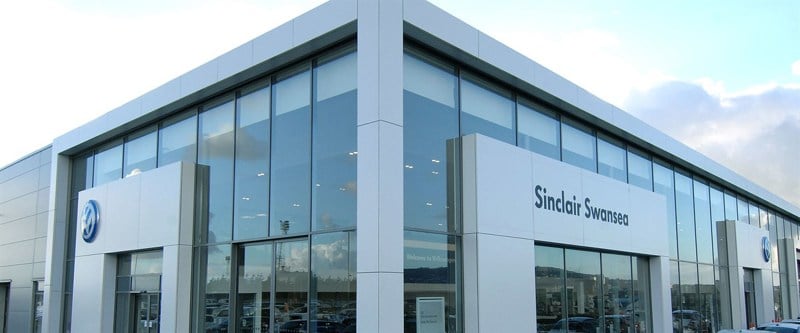 He believes that dealerships should start by focusing on recycling schemes and staff education. “At some point, you have to think about how to educate your staff. All our new starters receive carbon literacy training. With a staff turnover of about 15%, that means that within three years, 50% of our team will have had some form of training at induction.”
He believes that dealerships should start by focusing on recycling schemes and staff education. “At some point, you have to think about how to educate your staff. All our new starters receive carbon literacy training. With a staff turnover of about 15%, that means that within three years, 50% of our team will have had some form of training at induction.”
He says the Carbon Literacy Trust programme is ideal, although Seaward believes a ‘carbon literacy lite’ version could make it even more accessible which would help accelerate education across the dealership community swiftly at all levels.
Seaward and his team continue pushing for further improvements, with a goal of training 50% of the workforce in carbon literacy over the next two years. “There’s no substitute for sitting with people and talking about carbon literacy and why it matters. And if you can tie it into a business purpose, even better,” he says.
Seaward is thoroughly supportive of dealership groups helping each other out whether informally – here, he offers his own worked-through tender document for solar panels as a template that other businesses can use – and more formally.
“I think there's a big opportunity for some kind of consortium-type body that brings together motor retailers who have an interest in developing good, sustainable initiatives. The CLT has created their carbon literacy programme for retailers but I do think there's something there to explore how we can as a body of retailers actually come together to share because if you're not in the big group with someone who's doing all this, where do you even start?”
“If we could get to the point where we've got a consortium which says, here are our recommended suppliers for solar panels, we've been through the tender process, we understand who's got the good reputation to deliver value so that retailers can just pick it off the shelf, they would be far more likely to say @Okay, I'll go and speak to these guys and consider installing solar panels'.”
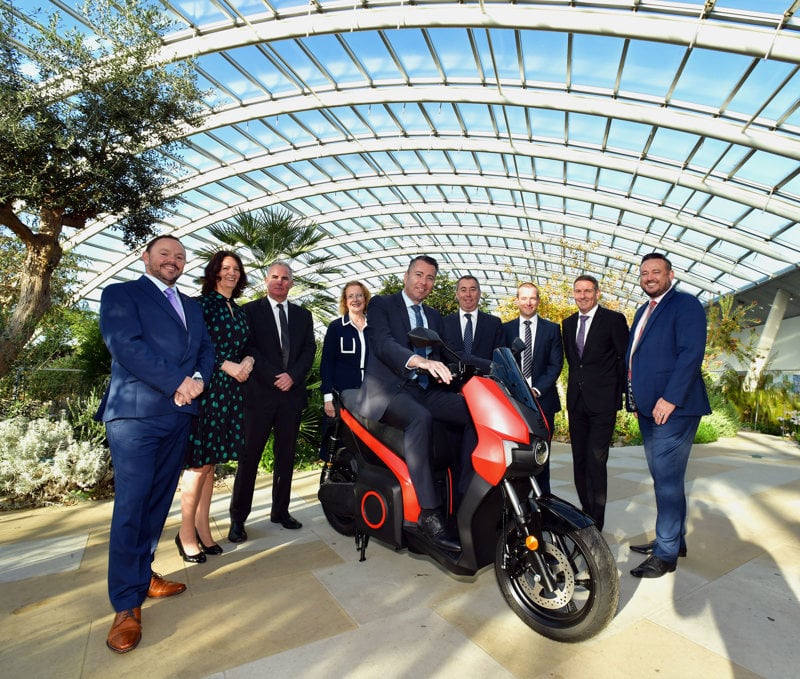
Login to continue reading
Or register with AM-online to keep up to date with the latest UK automotive retail industry news and insight.

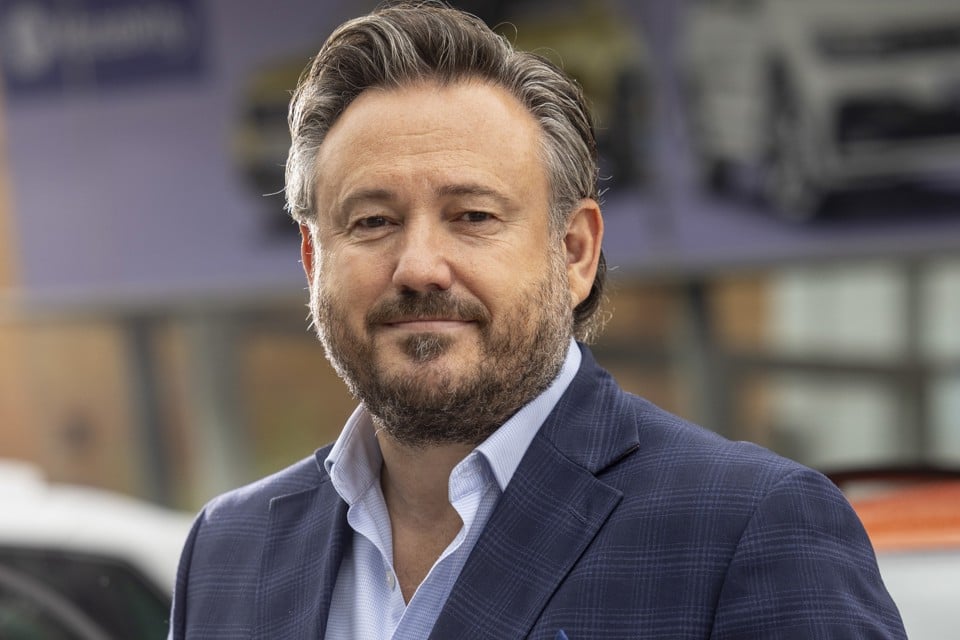














Login to comment
Comments
No comments have been made yet.